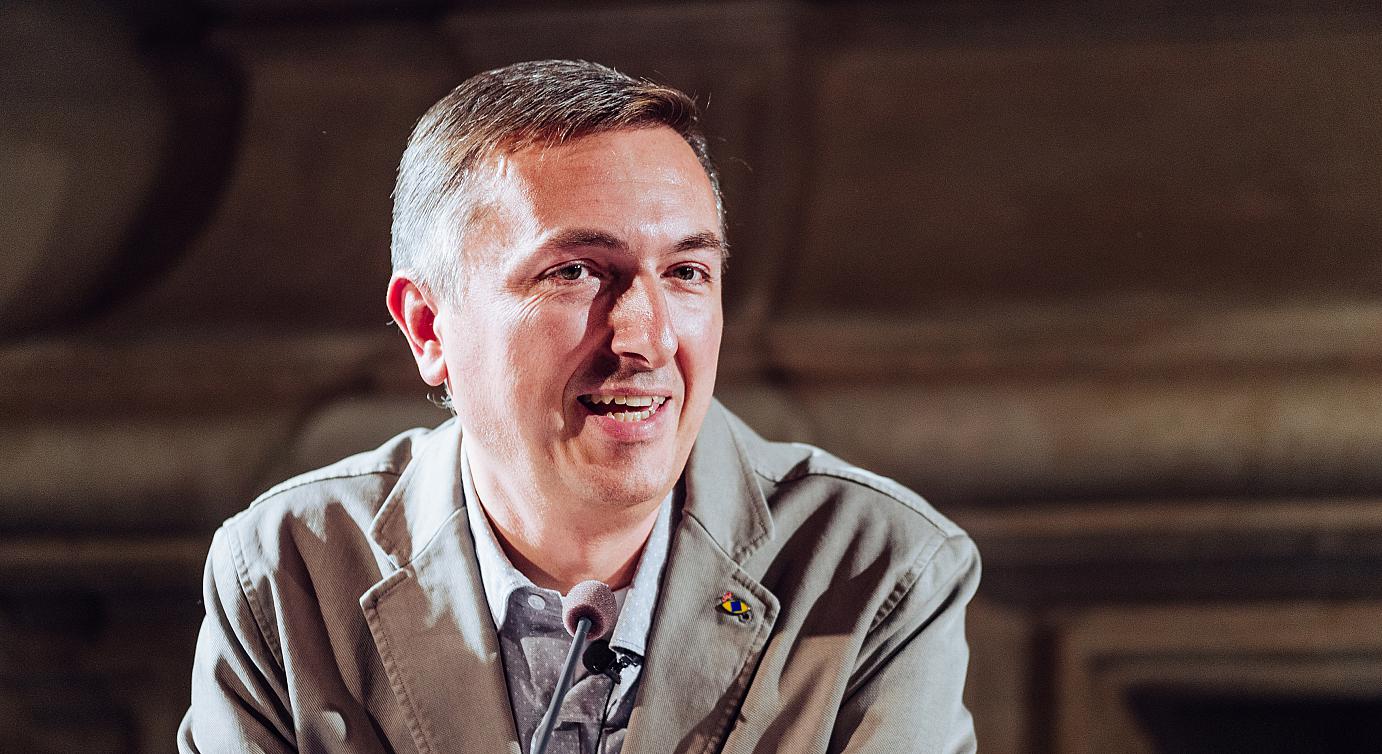
Dialogue with Alberto Broggi, General Manager at VisLab
17 December 2015Alberto Broggi, professor at the IT engineering department of the University of Parma, is the founder of VisLab, recently acquired for 30 million dollars by the Silicon Valley-based company Ambarella. We met him on the occasion the third talk of the Innovation Talks series, of which he was the invited speaker.
Professor Broggi, your project to develop an autonomous self-driving vehicle remained locked behind university walls for years. How was it that in 2009, the idea of launching a start-up came to be?
Founding a start-up was the way to bring this technology to the companies and also to keep our work team together: it wouldn’t have been possible at the university. In 2013 we understood we needed to shift gear, we had to move on a global scale and move fast because the big players (Google, Apple, Samsung) had started investing in these technologies with resources that couldn’t compare to ours. Therefore, it became necessary to find a sound partner to cooperate with, in order to be able to compete. Thus, we presented ourselves in the Silicon Valley, in Italy, and in Japan as well. We immediately received shows of interest from Silicon Valley. Google entering this sector made everyone understand it was a promising technology and this definitely helped us finding financial support. We chose the Silicon Valley because there one can find the businesses that were the first to follow this road. In addition to this, our way of working, even before the acquisition, was very similar to theirs. We always tried to do something that went beyond the state of the art and be the first. And on this, we found we were on the same wavelength with our Californian partners.
Within this new context, the Italian and the American teams are working together. What have you contributed and what are you getting back from this union?
We produce the software, they the hardware: the matching is perfect. The exchanges are continuous, we speak every night, via teleconference, and also we visit each other very frequently. The aim is to produce a smart camera, able to understand what is in front of the vehicle, or behind or to the sides. We bring our software experience to their chips, using all the know-how we developed in the past twenty years.
Despite the acquisition, VisLab is still in Parma. How did you manage to convince the Americans not to move your office?
It wasn’t easy at the beginning. Then we explained to them that people are the greatest value within VisLab and that by moving the office we’d run the risk of losing someone: they understood it was right to remain in Parma where we were born, where we have our roots and where we continue working and developing ourselves, still maintaining the link with the U.S. Also, here we try to work in a way so as to allow the best students to come to our university, and then we hire them, thus creating a virtuous ecosystem. It’s an advantage for us as we try to train the students and bring them inside the group and it’s an advantage for the university, because we have a Silicon Valley company inside our Campus.
Google too is working at developing a self-driving car. Are you competing against the American giant?
If you put it that way it sounds impressive. Actually, the target is the same, but the technology we develop is different. They use laser sensors, while we’re pushing the use of cameras, that are much cheaper. In addition to that, cameras are much smaller, they can be easily installed on board the cars, they can be hidden nicely and there’s no need to modify the aspect of the vehicle to make space for the sensors, while laser is bulky and it must be placed on the roof, with a substantial impact on the looks of the car. For the time being, the laser sensor performances are much higher, but we’re progressing rapidly and, when the cameras have comparable performances, we’ll have realized an efficient, flexible and cheap system.
When are we going to see driver-less cars around?
Very soon. Tesla has already a vehicle automation system. I believe the artificial vision-based technology will be ready in a couple of years. We’re talking about automation in a very simple environment though: motorways or extra-urban roads. We’ll have to wait longer, I’d say about fifteen years, for a self-driving city car.
How do you define innovation?
Trying to do something no-one else has ever done.
Besides the scientific skills, which are the managerial qualities that are needed to lead a high innovation content company such as VisLab?
The real difficulty was managing people who all had very high level profiles: engineers who had already worked on projects for large companies abroad, very talented people, with strong personalities.
What would you suggest to a student who has an entrepreneurial project?
I’d tell them to believe in it. We managed to create a small company, a start-up, which then attracted global interest and became united with a large company. It doesn’t happen every day, but it happens indeed and we’re a living example of it. Walt Disney used to say: “If you can dream it you can do it”. Let’s try, because it is possible to be successful.
Would you like to read more Dialogues with BBS Community lecturers? Please click here.
